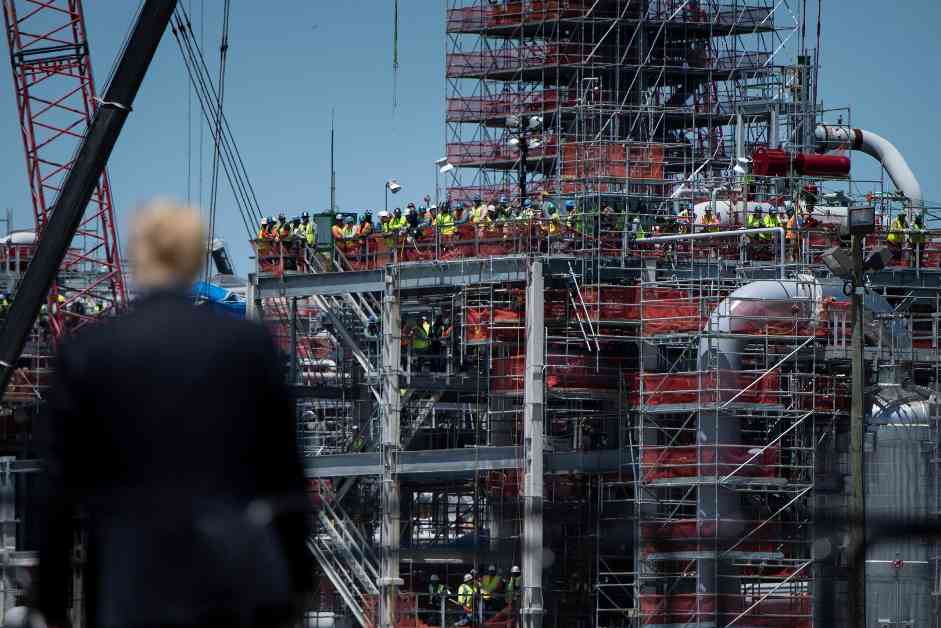**Debunking the Myth: Why LNG Is Not Essential for Energy Transition**
In a recent interview conducted by Paloma Beltran with Robert Howarth, a professor of ecology and environmental biology at Cornell University, the debate surrounding liquefied natural gas (LNG) and its impact on the environment has been brought to the forefront.
**The Carbon Footprint of LNG**
Howarth’s study revealed that the carbon footprint of LNG exported from the United States is significantly higher than that of natural gas used domestically or even coal in most countries. This finding challenges the notion that LNG is a cleaner alternative fuel.
**Industrialized Process with Environmental Consequences**
The production and transportation of LNG involve heavy industrial processes that result in substantial carbon dioxide and methane emissions. Methane, a potent greenhouse gas, is released during the extraction of shale gas, liquefaction of LNG, and combustion by tankers, contributing to the overall greenhouse gas footprint.
**LNG as a Bridge Fuel: Fact or Fiction?**
Despite being touted as a “bridge fuel” in the past, Howarth argues that natural gas, particularly in the form of LNG, is not a viable transition fuel due to its methane emissions. The marketing narrative created by the oil and gas industry has been debunked by scientific literature, revealing that the environmental impact of natural gas and coal is comparable.
**The Impact on Local Communities**
Communities near LNG projects, primarily located in the Gulf Coast, are experiencing negative effects from the industrial plants and associated emissions. Residents report lower life expectancies, increased health issues, and environmental pollution, highlighting the detrimental impact of LNG facilities on local populations.
**Moving Towards Renewable Energy**
Howarth emphasizes the urgent need to transition away from fossil fuels and towards renewable energy sources such as wind, solar, and hydro power. The decreasing cost and increasing efficiency of renewable technologies make them a more sustainable option for the future, challenging the necessity of LNG in the energy transition.
As we navigate the complexities of energy policy and environmental sustainability, it is crucial to consider the long-term implications of our choices. By supporting initiatives that prioritize renewable energy and reduce our reliance on fossil fuels, we can work towards a cleaner and greener future for all.
This article was brought to you by Inside Climate News, a nonprofit organization dedicated to providing free and unbiased climate coverage. Your support helps fund vital environmental journalism and ensures that important stories are shared with a wider audience. Thank you for being a part of the movement towards a more sustainable world.














